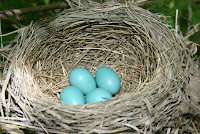(The 7-Eleven that I used nearly eveyday in Taipei)
My wife and I recently spent a month in Taiwan. I gave some lectures at the University and helped to co-teach a course titled Biodiversity, Agriculture and Culture of Taiwan. We had never been to Taiwan before, so we were not completely sure what to expect about finding the basic necessities of life: coffee, beer, Twizzlers. Within hours of arriving, we were told not to worry about any of this — just go to any 7-Eleven convenience store.
We found the 7-Eleven nearest our hotel room, and that was not difficult. With nearly 5,000 stores in this small country, we came to realize that in the capital, Taipei, there must be a 7-Eleven every couple of blocks. In fact, several times we saw 7-Elevens on opposite corners of the same intersection. That’s right, two stores immediately across the street from one another. Was my mind deceiving me, was I seeing double, had I entered some parallel universe without knowing it? Could the coffee be better in one of the stores than in the other? Were Twizzlers the same price in each? Too many stores, not enough time!
Every morning, I literally skipped to OUR 7-Eleven, bought two American-style coffees (which I learned to order in Mandarin), a couple of hard-boiled eggs that were prepared in a bath of salty tea water (delicious) and, voila, breakfast was ready. After a while, the clerks recognized me (not difficult to remember a white-haired gringo in a Taiwanese convenience store), so they began drawing my coffee before I even placed my order.
But these “convenience” stores, which are spotless, attractive, and nicely lit, offer much more than my necessities of life. You can take your dirty laundry to a 7-Eleven in Taiwan, they send it out, and you return to pick it up. You can order items from Amazon.com and have them delivered to your local 7-Eleven, where you retrieve them. This apparently saves the delivery person from trying to locate your apartment among the sea of apartments in Taipei, and from solving the problem of where to leave the item when you are not at home. You can pay traffic tickets there and, believe it or not, you can pay your federal income tax there if it is not above a certain amount. These stores are also a social gathering place in the evening; all seats are taken and it is standing room only after dark. What more they offer, I’m not sure. Maybe you can find a wife or husband through the place rather than spending time with an online matchmaking service. The possibilities are limitless. And did I mention that 7-Elevens in Taiwan are open 24 hours a day?
Of course, this all seems in contrast to the image most of us have of 7-Elevens in the U.S. I don’t go to ours after dark, because I don’t want to interrupt a robbery in progress. Ours are not as clean as those in Taiwan. Ours don’t have tea eggs. I can’t even remember where the 7-Elevens are in my town; in Taiwan, you simply walk a block and there one is.
So my impression of this Japanese-based company has changed for the better. People in Taiwan, Japan, Korea, China, and Thailand have appreciated the value of 7-Elevens for some time. Asians rely on them, they use them daily, and they seem proud to have them in their country. Taiwan also has Starbucks, but it seems that visiting one is considered a luxury, while the 7-Eleven is the staff of life.
Our 7-Elevens seem not as popular as they are in Taiwan. Maybe we have too many choices in the U.S., and we can drive as far from home as we need to get to any store we want. Maybe the name “7-11” is off-putting, because it reminds us of a casino, and who wants to go up against house odds when buying something you are going to put in your mouth. There are many possible reasons why 7-Elevens are not as popular in the states. But I’m putting my money on the fact that ours don’t have tea eggs.
Article first published as The 7-Elevens in Taiwan Are a Necessity - Not a Convenience on Technorati.

